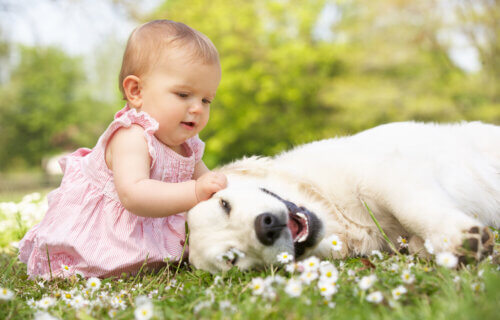Bringing a new baby into the world is a whirlwind of emotions – excitement, joy, and maybe a touch of sleep deprivation. One question that often pops up for new parents is whether to add a furry friend to the family. If you’re considering a canine companion to grow alongside your little one, you’re not alone! Dogs can bring love, laughter, and loyalty to your household, but not all breeds are created equal when it comes to tiny humans. This article will explore some of the best dog breeds for families with babies, taking into consideration temperament, size, and gentleness – all to ensure a harmonious home for everyone involved.
Choosing the right dog can help create a positive and enriching experience for both your baby and your furry friend. If you have a dog with a baby in the house, make sure you are ensuring proper preparation and supervision. Below are the top seven best dog breeds for babies that were most recommended across eight expert reviews. Don’t see your pal on the list? Let us know in the comments below which breed is your number-one pick!
The List: Best Dogs for Babies, Per Pet Parents
1. Golden Retriever
It’s known that Golden Retrievers are lovers, and they are also gentle with babies. They’re one of the most popular dog breeds. Hepper also notes that their larger size allows them to easily put up with a toddler once your baby gets a little bit older.
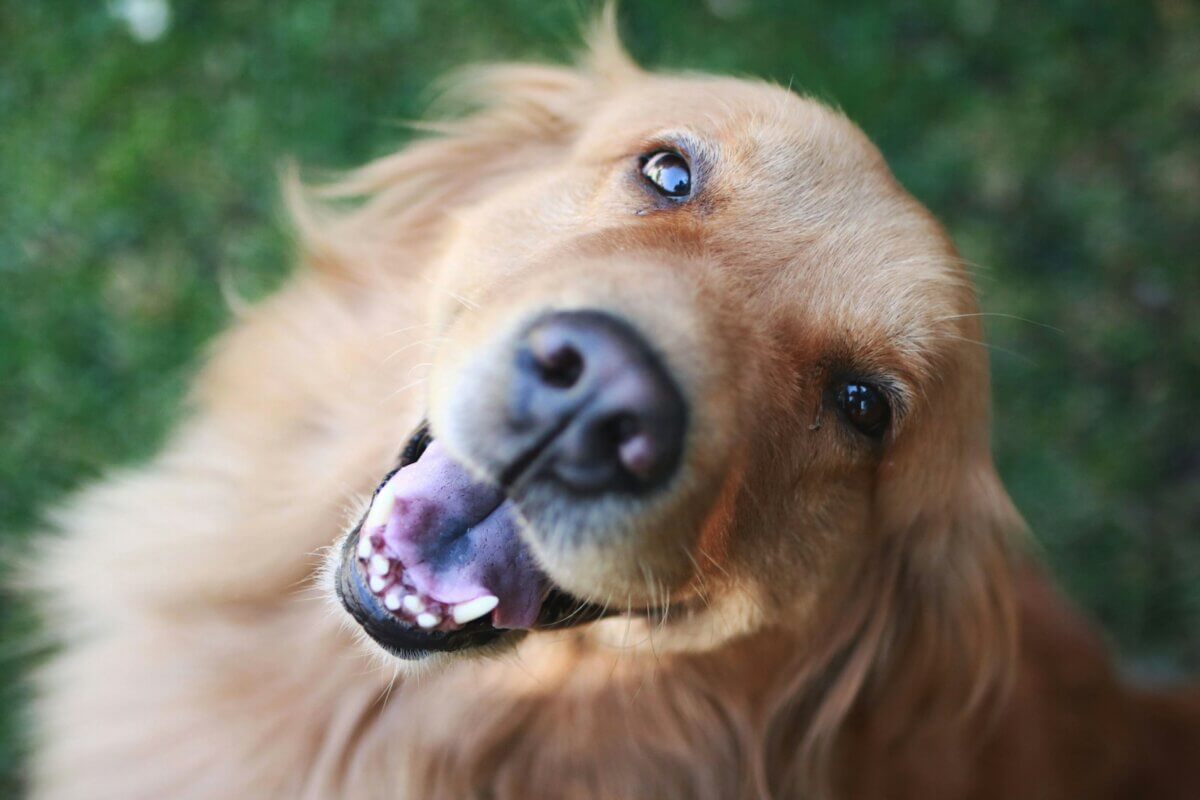
While they are popular, parents who are unfamiliar with Goldens do exist. They may assume going with a small dog may be the answer, but that’s not the case with a Golden. Think about how rough a toddler can be, especially with the family pet. Goldens are so friendly that they tend to just take it. Be Chewy points out that smaller dogs may have adverse reactions to the rough play that can come with little kids.
Golden Retrievers are loving, loyal, and eager to please, but the best quality they have for families with a baby is that they don’t bark much. Not only will they not wake your sleeping baby, but according to Pet MD, they won’t annoy your neighbors.
2. Beagles
Even though Beagles are small, they’re great with babies. You’ll never be lonely with a Beagle around because they love to be with their pack. These easy-going fur balls do great in small spaces, according to Hepper. Anywhere you choose to raise your little one is fine by your Beagle! Just don’t forget about their much-needed cuddles from time to time.

Although Beagles are generally friendly dogs, it’s important to start training them for baby as early as possible. Start changing their routine 60 to 90 days before the baby’s arrival. Be Chewy says a Beagle rarely meets a person they don’t like, but it’s better to be safe than sorry when expecting a newborn in the house.
Keep in mind that this breed can be pretty rambunctious, hence the early training. But they will love your baby into adulthood. Their keen sense of smell results in a lot of supervision, according to Pet MD.
3. Newfoundland
If you’re looking for a more protective dog that is safe with your baby, Newfoundlands are a great choice. Despite their large stature, they are gentle giants. Hepper tells us that they are so good with kids, that they are referred to as “nanny” dogs.
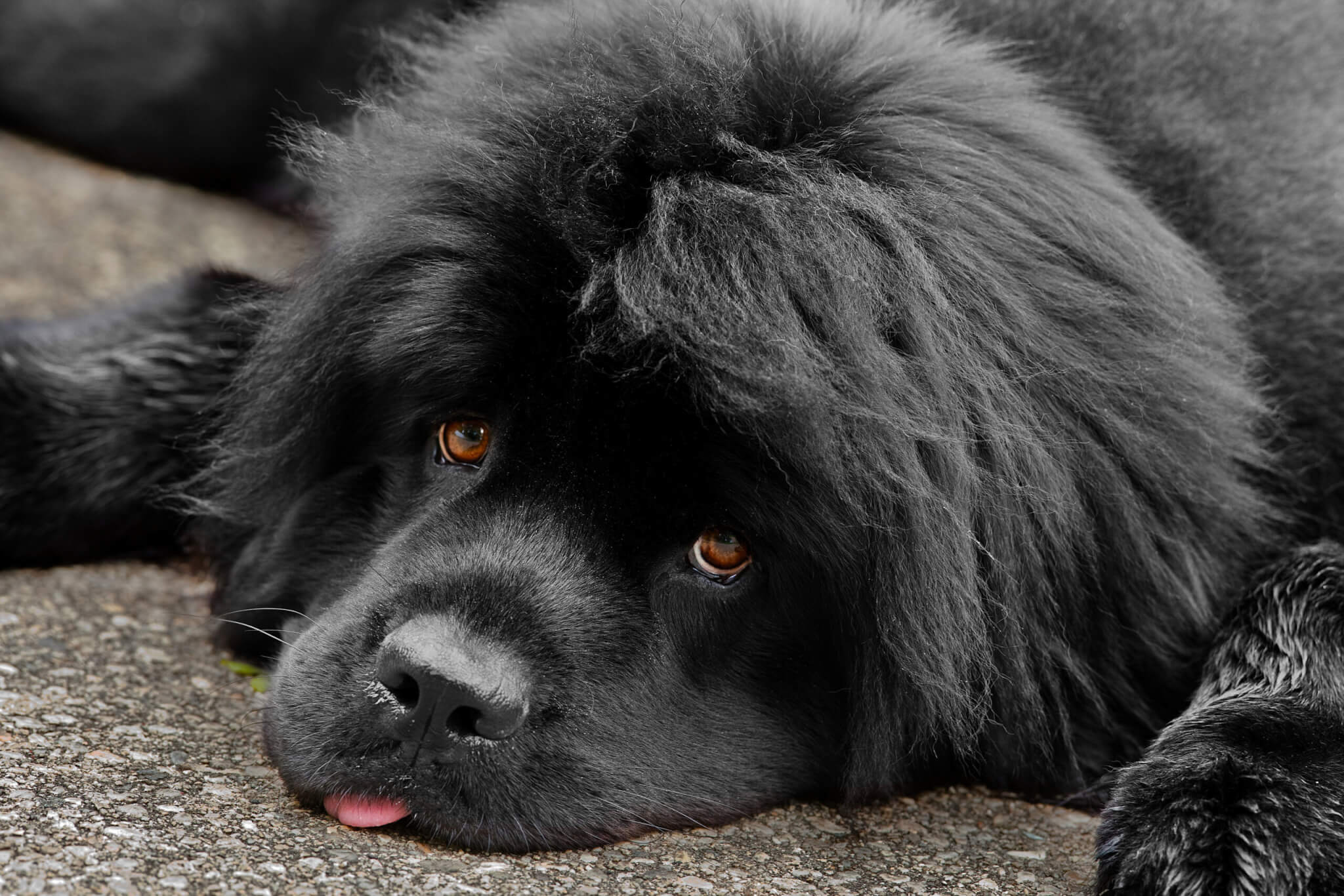
Because of their size, make sure you have room in your home for a 100-pound Newfie. What really makes them stand out as a baby-safe pet, is that they are especially patient with small children (Pet MD). So, if you have the room, a Newfoundland is a great choice for your growing family.
4. Labrador Retriever
If you have an active family, a Lab would be the perfect addition. Hepper brings up a great point that since they are easily trainable in general, they can be taught to behave around babies.
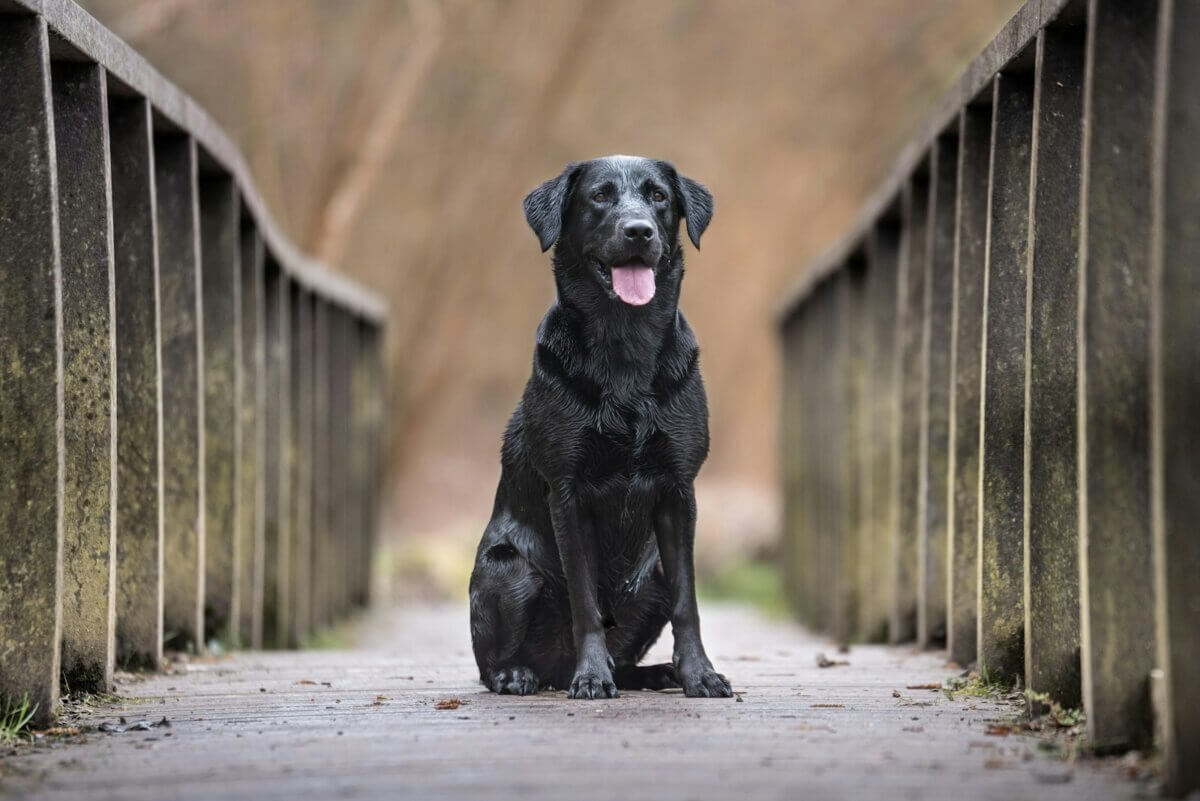
Labs are often therapy dogs, and they have a strong desire to please, making them greataround babies. These are the traits you want when training a dog to be around your children. Be Chewy can attest saying, “teaching them what to do or not to do in relation to your kids is easy because they want to make you happy.”
As your baby grows into a child, your Lab would love to splash around in the water with them. Labs love to swim and would make a great vacation companion. In case you forgot, Pet MD says that these cuties come in three colors — yellow, black, and brown.
5. Collie
Collies are among the smartest dog breeds, perhaps that was the reason behind Lassie’s casting. In addition, Collies are very patient with children. Pet MD points out that they come in two coat types — smooth and rough. What’s the difference? Rough Collies have a coarse outer coat and a smooth undercoat, while smooth Collies don’t have that outer protective layer.
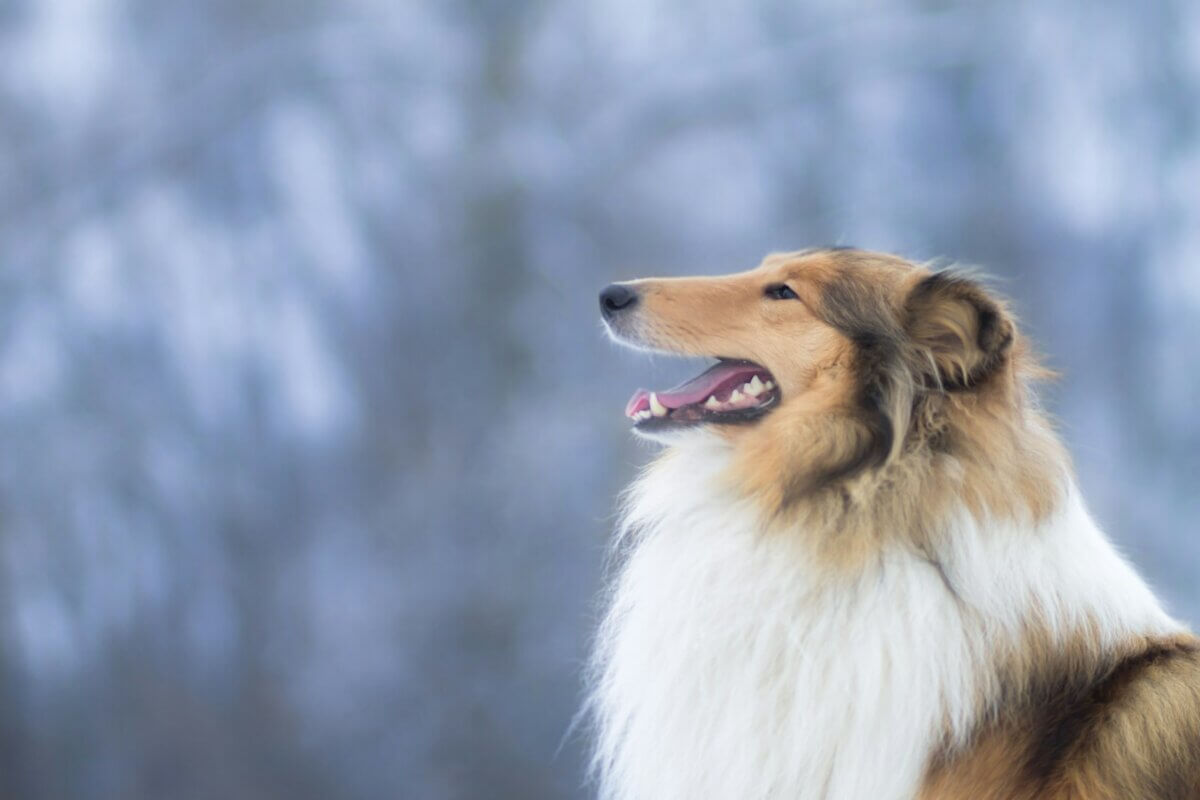
Collies do need a lot of activity, but they are also happy cuddling next to you or your baby. The American Kennel Club describes them as graceful, proud, and devoted. While they are described as good with kids and babies, you should keep your eye on them around other dogs.
Have you ever heard of a dog that alleviates stress? According to Wag Walking, Collies do. With that in mind, their calming presence is great for new parents and babies alike.
6. Bulldog
Bulldogs are as gentle as can be and they love to cuddle. They don’t require much maintenance in the activity area. Hepper backs this up by claiming they don’t need as much exercise as other breeds.
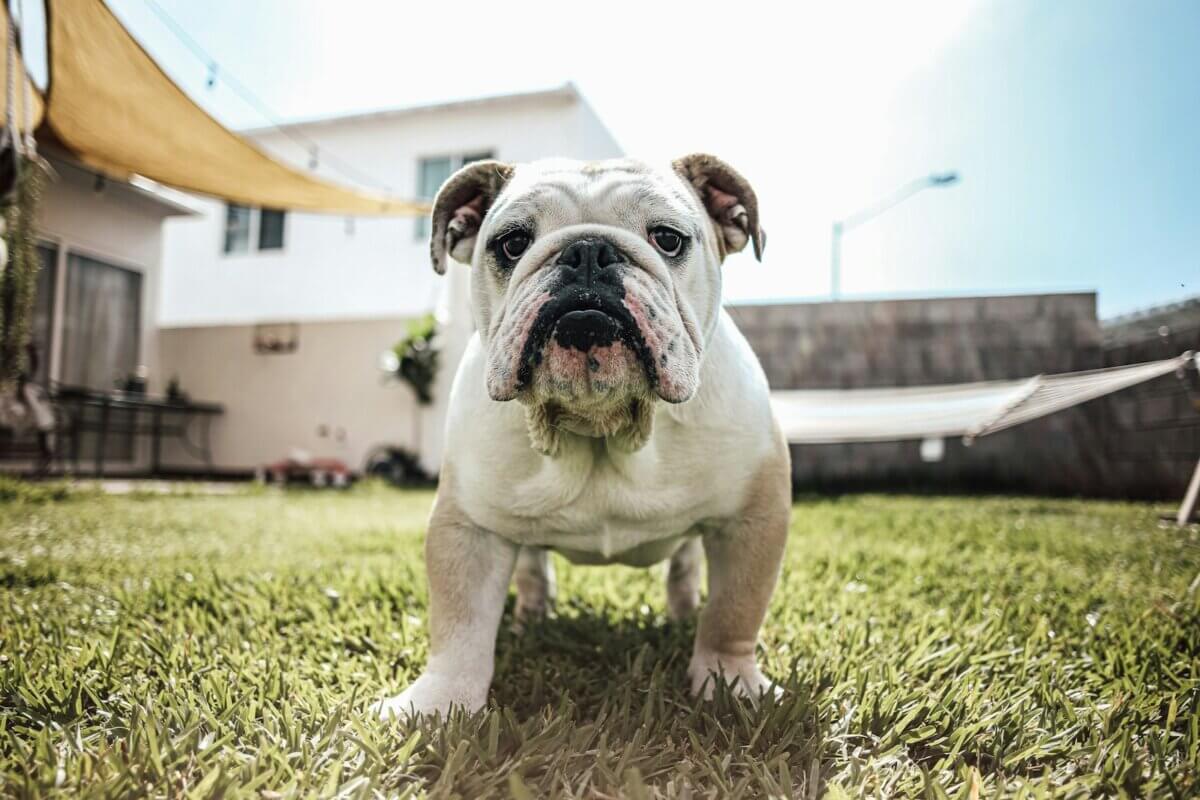
Bulldogs have a heavy build, and for good reason. During the 19th century, they were used for bull baiting in England. Despite their appearance, Bulldogs are known to form strong bonds with children. Be Chewy points out that they are even protective of them.
Who doesn’t love the Bulldog’s adorable flat faces that are almost as adorable as a baby’s face. They love playing with kids, but Pet MD advises to be aware of potential health issues that tend to come with this breed.
7. Poodle
Poodles are great family dogs, but they do require a little maintenance. So, if you’re just getting a dog to appease a child or if you have a big family, you may want to go with a different breed. Out of the three size choices (standard, miniature, and toy), Hepper recommends skipping the toy size because larger Poodles tend to do better with kids.
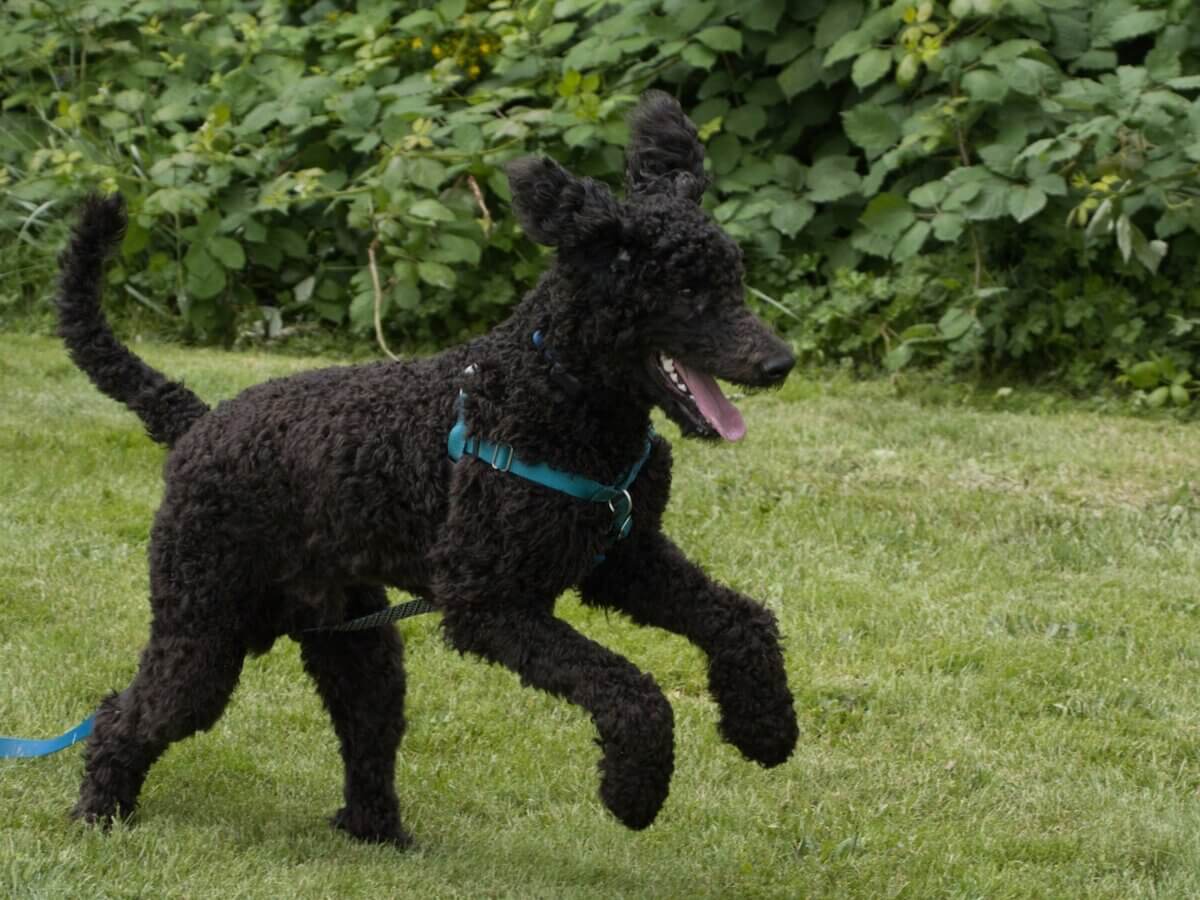
When you start to have kids, “stuff” takes over the house. Fortunately, poodles don’t shed much so you won’t have to deal with the extra mess or your baby stuffing furballs in their mouth. Pet MD brings up a great point that the breed is the perfect fit for anyone with allergies.
Potential Benefits of Having a Dog Around Your Baby:
- Development of social and emotional skills: Studies suggest children raised with dogs may show increased empathy, compassion, and responsibility. Interacting with a dog can teach children about non-verbal communication, boundaries, and how to care for another living being.
- Immune system boost: Exposure to certain microbes from pets may help strengthen a child’s developing immune system, potentially leading to fewer allergies and respiratory infections. However, this is still an evolving area of research, and some children with weakened immune systems might need extra precautions.
- Physical activity: Owning a dog can encourage outdoor play and physical activity for both the child and the dog, promoting healthy habits and development.
- Reduced stress and anxiety: Studies suggest interacting with pets can decrease stress hormones and provide comfort, potentially benefiting both the child and the dog.
- Companionship and entertainment: Dogs can offer companionship and entertainment for children, reducing boredom and loneliness. This can be especially helpful for children who are shy or have difficulty making friends.
Sources:
Note: This article was not paid for nor sponsored. StudyFinds is not connected to nor partnered with any of the brands mentioned and receives no compensation for its recommendations. This article may contain affiliate links in which we receive a commission if you make a purchase.
